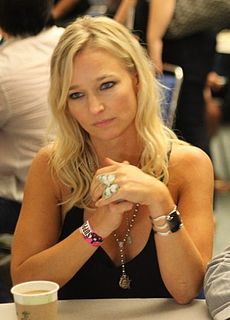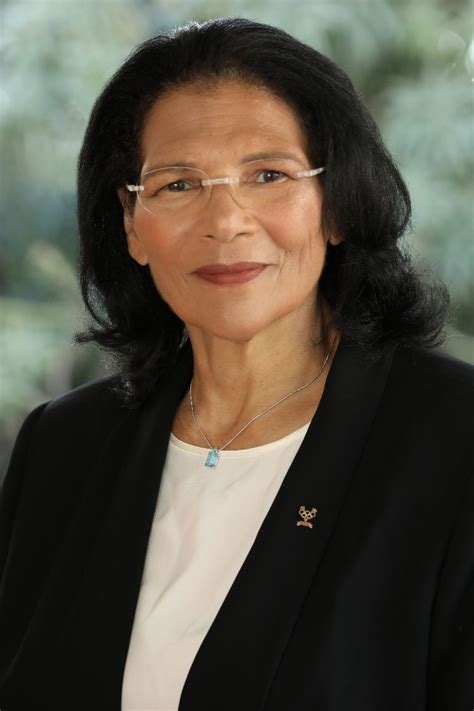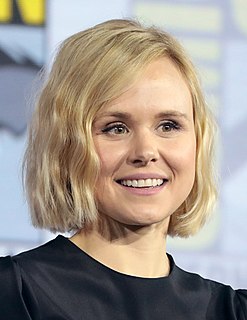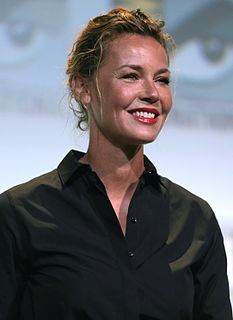A Quote by Cass Sunstein
In 'The Force Awakens,' women as well as men are in positions of authority. And you don't have to work hard to do that - it's not a statement, it's the world.
Related Quotes
What business needs now is exactly what women are able to provide, and at the very time when women are surging into the work force. But perhaps even more important than work force numbers is the fact that women - who began this sweeping entry in the mid-seventies - are just now beginning to assume positions of leadership, which give them the scope to create and reinforce the trends toward change. The confluence is fortunate, an alignment that gives women unique opportunities to assist in the continuing transformation of the workplace.
Martina Navratilova is not a 'girl,' nor is Debi Thomas or Katarina Witt, and the women skaters weren't 'cute' in 1988. The problem with describing women as girls is that they never grow up and therefore can't take positions of authority in the world of sport. But the good news is that you can change language, so ultimately you can change the picture of women in sports.
When we look at women, we have to look at the significance of their work in a different way from the way we look at it with men. Women have more often worked within the home, working equally as hard, I would argue, but not always out there where they're counted, not always up there in the labor unions, certainly not in leadership positions.
I've played lots of strong women in film, in big Hollywood films, and I've sometimes had a hard time in coming to a consensus of what makes a woman strong. What is it that positions her as a force to be reckoned with? And I think it's because there's an expectation from the get-go that she isn't. If you're not starting from a deficit as a point of view, but you're starting from an assumption that says, "Well, this is what women really are," then it's a really freeing experience as an actor and as a woman.
When you look at how men and women are living together, there are two processes at work. One, women are rising in the middle class; their earning potential is rising compared to men. It has been underway for 100 years, and nothing is going to stop it. On the other hand, women are denied iconic positions of power - equity partnerships law firms, Hollywood salaries.
In the US in recent years, around a third of all open management positions have gone to women. My research over the last three years has shown that the trend is going in the same direction at all levels. And by the way, it's not necessarily that the rise of women is causing the end of men - it's more the other way around. An increasing number of men are failing during their education, losing their jobs and then not managing to get back on their feet, so women have had to step in. The driving force here isn't feminist conviction, it's economic necessity.
Men didn't like to empty bedpans, so we made women nurses. Then men didn't like to do the administrative stuff, so women were allowed to become secretaries. That's the way they entered the work force. Then we began to educate them because they had to be educated. But it wasn't until after World War II that most of the great universities of this country became coeducational.



































